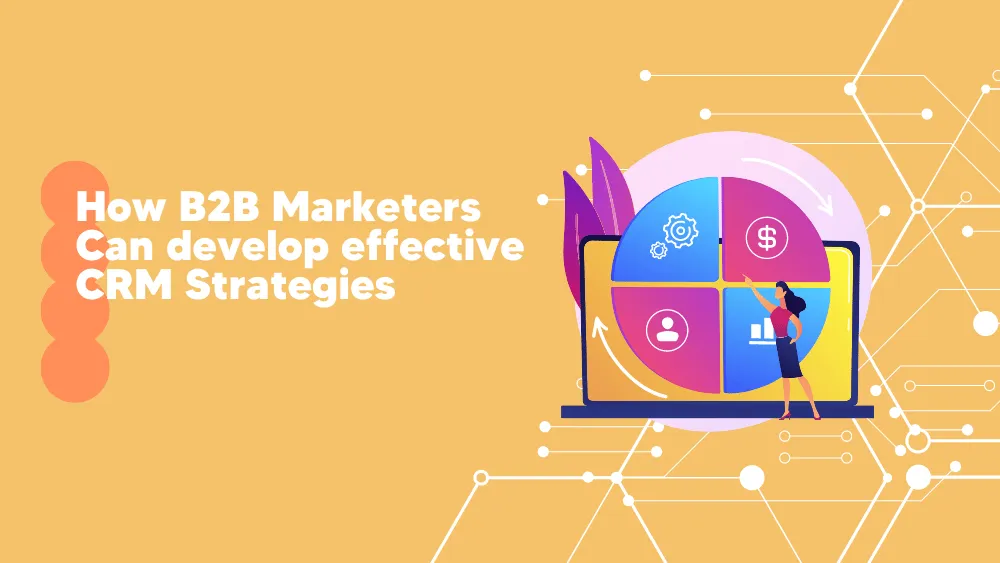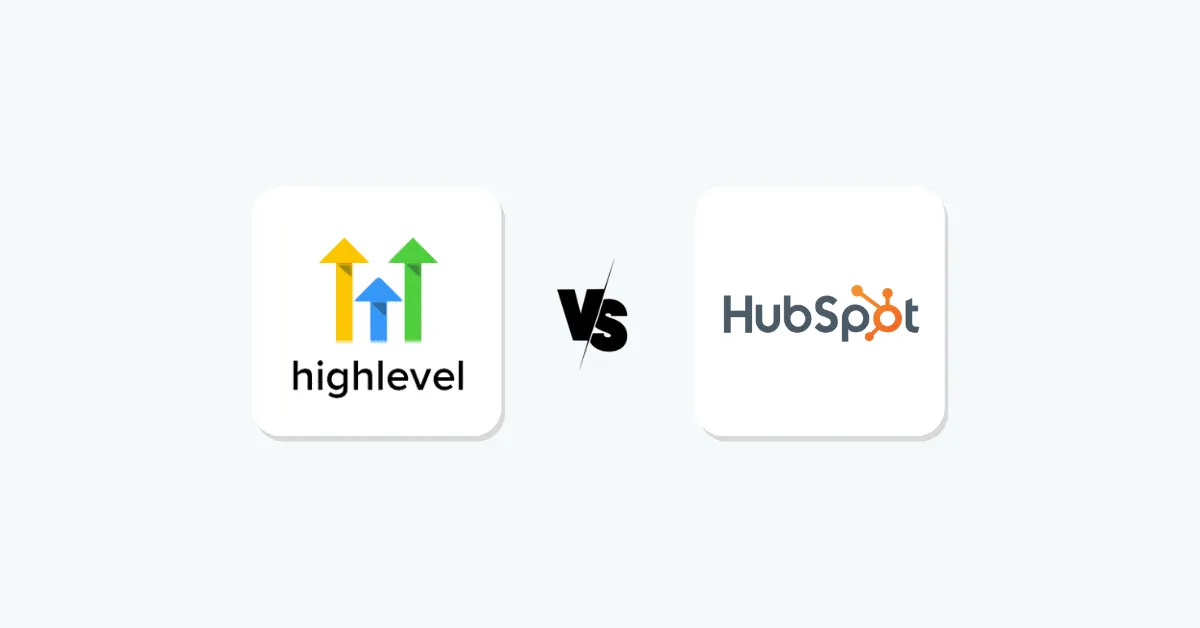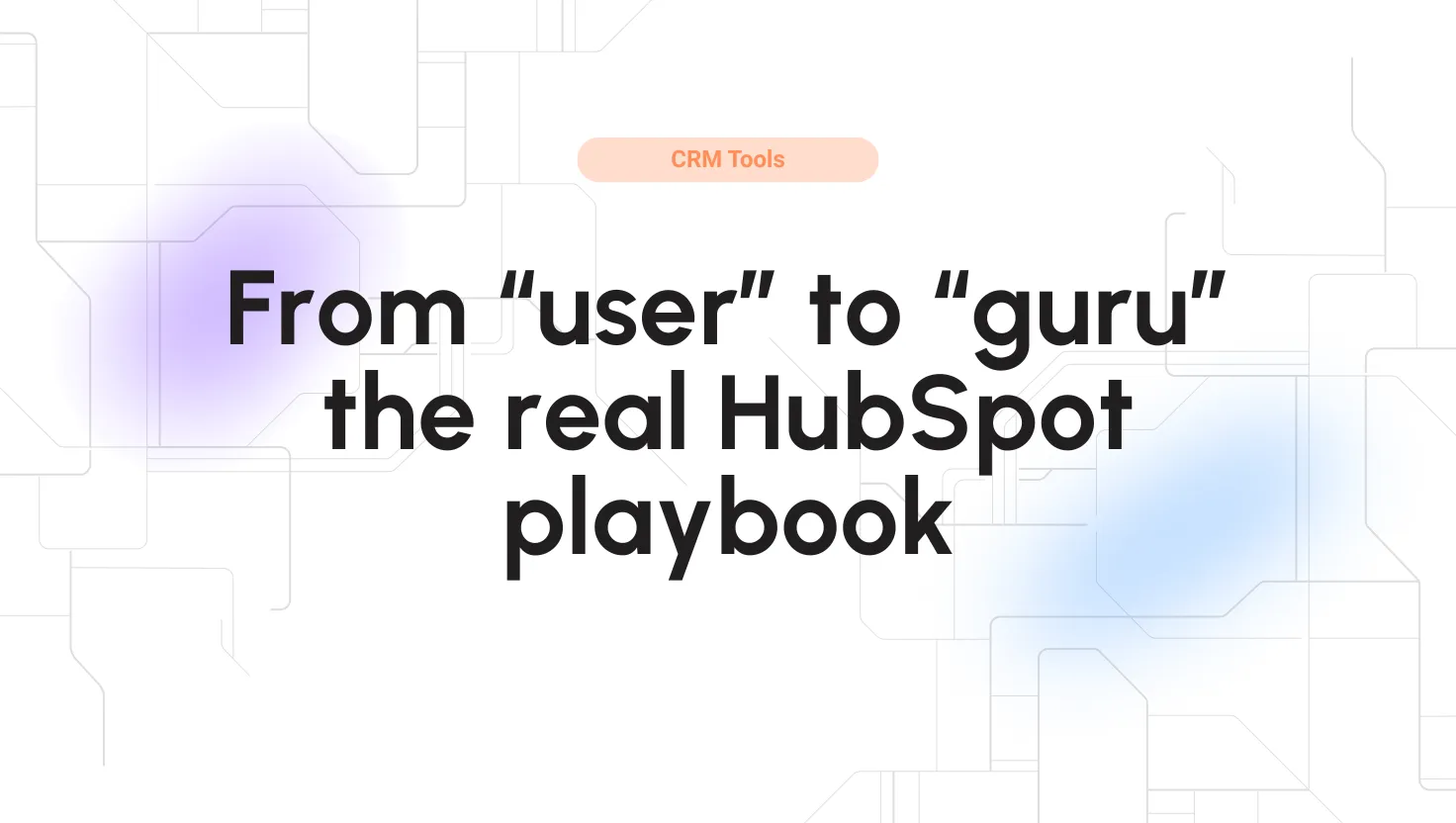In the ever-evolving field of B2B marketing, the role of Customer Relationship Management (CRM) strategies has become increasingly vital. B2B marketers operate where the stakes are high, where the purchase decisions are often complex and involve multiple stakeholders. Unlike B2C marketing, B2B transactions often involve long sales cycles, intricate negotiations, and a thorough understanding of the target audience’s needs, pain points, and objectives.
To overcome these challenges, B2B marketers must embrace more sophisticated CRM strategies that empower them to deliver personalized experiences and engage with their target audience at every touchpoint.
This article will dive deep into the key strategies and considerations that can help B2B marketers develop more effective CRM strategies. We will explore ways to help B2B marketers succeed. This includes understanding the audience, using CRM technology, making data-driven decisions, and focusing on personalization and customer engagement.
Understanding Your Target Audience
First, one of the fundamental pillars of developing effective CRM strategies for B2B marketing is gaining a profound understanding of your target audience.
B2B customers are a diverse group with unique needs, pain points, and goals. To create impactful CRM strategies, delving into their world and uncovering the key insights that can drive meaningful engagement and build long-term relationships is crucial. To initiate the process, B2B marketers must utilize diverse approaches for collecting customer data and obtaining valuable insights.
Surveys
In addition to surveys, interviews, and focus groups, analyzing website analytics can provide valuable data on customer behavior, such as browsing patterns, content engagement, and conversion rates. By understanding how customers interact with your website, you can identify areas of improvement, optimize user experience, and tailor your CRM efforts to align with their preferences.
Buyer Persona
By understanding your target audience deeper, you can align your CRM strategies with their unique challenges and aspirations. Whether addressing pain points through targeted solutions, offering valuable resources, or providing personalized support, tailoring your approach based on customer insights enhances the effectiveness of your CRM efforts.
Marketing Channels
Therefore, understanding your target audience is essential in developing effective CRM strategies for B2B marketers. This knowledge allows personalized messaging, tailored engagements, and building strong, long-lasting relationships with B2B customers. With a customer-centric approach, B2B marketers can elevate their CRM strategies to drive business growth and exceed customer expectations.
Aligning Sales and Marketing Efforts
Within B2B marketing, aligning sales and marketing efforts is crucial to developing effective CRM strategies. When these two key departments work harmoniously towards a common goal, the results can be transformative. By aligning goals, establishing effective communication channels, and sharing data, sales and marketing teams can optimize lead generation, nurturing, and conversion, ultimately enhancing the overall customer experience.
KPI
Establishing effective communication channels is vital for seamless collaboration. Regular meetings, joint planning sessions, and clear lines of communication foster a collaborative environment where sales and marketing teams can share insights, feedback, and updates. By breaking down silos and encouraging open dialogue, teams can leverage each other’s expertise and align their efforts for maximum impact.
Data Sharing
A coordinated approach between sales and marketing ensures a unified customer experience throughout the buyer’s journey. Prospects receive consistent messaging, seamless transitions, and a cohesive brand experience when both teams work together. This enhances customer satisfaction, builds trust, and increases the likelihood of conversion and long-term loyalty, which can keep the business at the highest profitability rates.
Lead-Nurturing
As explained, aligning sales and marketing efforts is crucial for the success of CRM strategies in the B2B realm. This coordinated approach ensures a unified customer experience, enhances customer satisfaction, and maximizes the impact of CRM strategies. By working together towards a common objective, B2B organizations can foster strong customer relationships and achieve their sales and marketing goals.
Leveraging CRM Technology
What does CRM software do for B2B Marketing activities in practical terms?
First, CRM software empowers businesses to streamline processes, manage customer relationships, and drive growth. By harnessing the capabilities of a robust CRM platform, B2B marketers can unlock a wealth of benefits that enhance their marketing strategies and deliver superior customer experiences.
Advantages of CRM platforms
One of the primary advantages of CRM technology is centralized data management. With a CRM system, B2B marketers can consolidate valuable customer data from various touchpoints, including interactions, transactions, and engagements. This centralized repository allows for a holistic view of each customer, enabling marketers to gain comprehensive insights into their preferences, behaviors, and needs.
With this knowledge, marketers can tailor their strategies and communications to resonate with their target audience more effectively.
-
Streamlined workflows
Another significant benefit of CRM technology. By automating manual tasks and streamlining processes, CRM platforms enable B2B marketers to work more efficiently and focus on value-added activities. Tasks such as lead management, data entry, and campaign tracking can be automated, freeing valuable time and resources. This automation enhances productivity, minimizes the risk of errors, and ensures consistent data entry and management.
-
Enhanced customer insights
CRM technology also provides B2B marketers with enhanced customer insights; we all know how paramount they are to understand customer needs.
CRM platforms enable marketers to extract valuable intelligence from vast customer data through advanced analytics and reporting capabilities.
These insights allow marketers to understand customer behavior patterns, preferences, and trends, enabling them to make data-driven decisions and optimize their marketing strategies. By leveraging these insights, marketers can target their efforts more effectively, personalize their messaging, and improve overall customer engagement.
How to choose the right CRM tools?
When selecting a CRM platform, it is crucial to consider specific features that align with the unique needs of your business. Customizable dashboards and reporting functionalities allow marketers to tailor the CRM system to their requirements, ensuring relevant and actionable insights.
- Integration capabilities are also essential, enabling seamless connectivity between the CRM platform and other marketing tools and systems, such as email marketing, analytics, and social media platforms.
- Furthermore, automation functionalities within the CRM system, such as workflow automation and lead nurturing workflows, can perfectly streamline processes and improve efficiency.
Leading CRM platforms such as Salesforce, HubSpot, and Zoho have established themselves as industry leaders, offering comprehensive solutions tailored to the needs of B2B marketers. These platforms provide many features and functionalities, including customer data management, campaign management, analytics, and integration capabilities.
By selecting the right CRM platform for their business, B2B marketers can leverage advanced tools to optimize their marketing strategies and drive measurable results.
As a consequence of what we have seen so far, CRM technology is an absolutely powerful asset for B2B marketers, offering centralized data management, streamlined workflows, and enhanced customer insights. With the right CRM technology, businesses can enhance their competitiveness and drive growth.
Implementing Data-Driven Decision-Making
By harnessing the power of relevant data, such as customer demographics, buying behavior, and engagement metrics, B2B marketers can make informed decisions that drive their marketing initiatives forward. Implementing data-driven decision-making allows marketers to gain valuable insights, optimize campaigns, and deliver personalized experiences to their target audience.
Here’s what they bring to the table in more detail:
-
Enhanced customer understanding
Data-driven decision-making enables B2B marketers to understand their target audience better. By analyzing customer demographics, preferences, and behaviors, marketers can uncover valuable insights into their customers, what they need, and how they engage with the brand. This knowledge helps marketers develop more targeted and effective CRM strategies.
-
Personalized experiences
Leveraging customer data allows B2B marketers to create personalized customer experiences. Marketers can deliver tailored messaging, content, and offers by understanding individual preferences, purchase history, and engagement patterns. This personalization improves customer satisfaction and increases engagement and loyalty, as customers feel valued and understood by the brand.
-
Optimized campaigns
Data-driven decision-making empowers B2B marketers to optimize their campaigns for better effectiveness. Marketers can identify what resonates with their target audience by analyzing customer behaviors, preferences, and response rates. This insight lets them make data-backed decisions on messaging, content, and marketing channels. Marketers can maximize their campaign performance by focusing on strategies that yield the highest return on investment, resulting in higher conversion rates, improved lead generation, and better overall marketing outcomes.
-
Informed investment decisions
Data-driven decision-making helps B2B marketers make more informed investment decisions. Marketers can allocate their resources more effectively by analyzing data on campaign performance, customer acquisition costs, and lifetime value. They can identify which marketing channels and tactics deliver the best ROI and prioritize investments accordingly. This optimization of marketing budgets leads to cost savings and improved return on investment.
-
Agility and responsiveness
With real-time access to data, B2B marketers can quickly adapt their strategies and tactics based on changing market dynamics, customer preferences, and competitive landscapes. Marketers can seize opportunities and promptly address challenges by monitoring data and identifying emerging trends. This agility allows them to stay ahead of the curve, make timely adjustments to their CRM strategies, and maintain a competitive edge in the market.
-
Continuous improvement
Data-driven decision-making promotes a culture of continuous improvement. By regularly monitoring and analyzing data, B2B marketers can identify areas for optimization and refinement in their CRM strategies. They can measure the effectiveness of their campaigns, track key performance indicators, and identify opportunities for growth and enhancement.
This continuous improvement mindset enables marketers to iterate and evolve their CRM strategies, ensuring the ongoing success and staying ahead in a rapidly changing business landscape. At this stage, it’s important to note that data-driven decision-making goes beyond merely collecting data; it requires a culture of data-driven thinking within the organization. This involves fostering a mindset where data is valued and decisions are based on evidence rather than assumptions or personal biases.
B2B marketers should invest in data literacy and provide training to ensure their teams have the necessary skills to interpret and leverage data effectively.
Personalization and Customer Engagement
By tailoring marketing messages, content, and experiences to individual customers, B2B marketers can generate stronger connections, enhance engagement, and foster long-term loyalty. But how to properly work on personalization and customer engagement? What are the main steps and guidelines?
Personalization and customer engagement, in the context of CRM strategies, mainly consist of:
-
Account-based marketing
Personalization in CRM strategies involves adopting an account-based marketing (ABM) approach. B2B marketers identify key accounts or high-value prospects and create tailored marketing campaigns to resonate with their needs and challenges. By understanding each target account’s unique pain points and goals, marketers can deliver personalized messages, content, and offers that address their specific requirements, increasing the likelihood of engagement and conversion.
-
Dynamic content personalization
B2B marketers can leverage CRM data to personalize content based on individual customer attributes dynamically. By utilizing data such as industry, job title, past interactions, and preferences, marketers can create dynamic content that adapts to each customer’s specific needs and interests. This approach allows for a more personalized experience, making the content more relevant, engaging, and impactful.
-
Targeted nurture campaigns
Personalization in CRM strategies extends to nurturing leads throughout the customer journey. B2B marketers can create targeted nurture campaigns that deliver tailored messages and content at each stage of the buying process. Marketers can provide relevant and timely information that guides prospects toward making informed purchase decisions by segmenting leads based on their behaviors, interests, and engagement levels. This personalized approach enhances customer engagement, builds trust, and increases the likelihood of conversion.
-
Customized experiences
Personalization goes beyond content and messaging; it also involves delivering customized experiences to B2B customers. By utilizing CRM data, marketers can personalize interactions, such as website visits, emails, and event experiences, to align with the preferences and needs of individual customers. This level of customization creates a sense of exclusivity, making customers feel valued and understood, resulting in increased engagement, satisfaction, and loyalty.
-
Relationship building
Personalization in CRM strategies enables B2B marketers to focus on building strong and meaningful relationships with their customers. By understanding customer preferences, pain points, and goals, marketers can provide personalized guidance, support, and recommendations throughout the customer journey. This personalized approach builds trust, strengthens relationships, and positions the brand as a reliable advisor, leading to long-term customer loyalty and advocacy.
-
Data-driven personalization
Personalization in CRM strategies relies on leveraging data to drive insights and actions. By continuously collecting and analyzing customer data, B2B marketers can uncover patterns, preferences, and trends that inform personalized strategies. This data-driven personalization allows marketers to anticipate customer needs, deliver relevant recommendations, and provide a seamless and personalized experience across multiple touchpoints.
-
Measurable impact
Personalization in CRM strategies offers measurable benefits. Marketers can measure the impact of personalization efforts by tracking and analyzing engagement metrics, conversion rates, and customer satisfaction. This data allows them to refine and optimize personalization strategies, ensuring continuous improvement and better results.
Conclusion
Having explored the various aspects discussed in this article, developing effective CRM strategies is crucial for marketers aiming to excel in their B2B industry. To succeed with CRM, marketers need to understand their audience. They should also align sales and marketing efforts. Additionally, they should utilize CRM technology and make data-driven decisions. Lastly, they should focus on personalizing customer experiences.
Furthermore, by continuously monitoring and adapting their strategies, marketers can stay ahead of the curve and confidently navigate the ever-evolving business landscape. B2B marketers can achieve better relationships and effective customer engagement and reach their marketing goals by adopting these practices. In a competitive world, these practices are essential for success.
With effective CRM strategies at their core, B2B marketers are well-equipped to thrive and forge a path to long-term growth and prosperity for their organizations.







